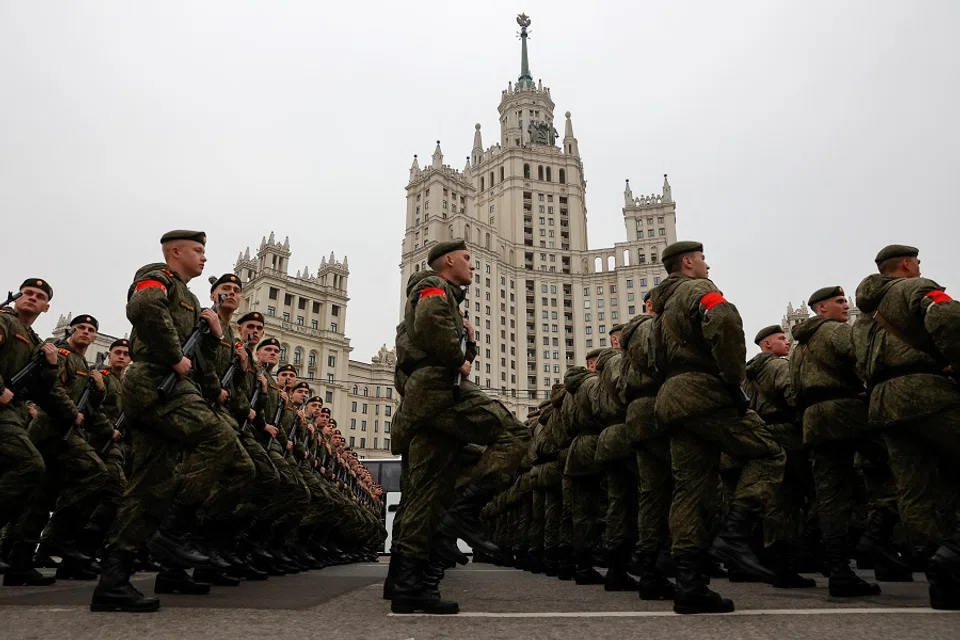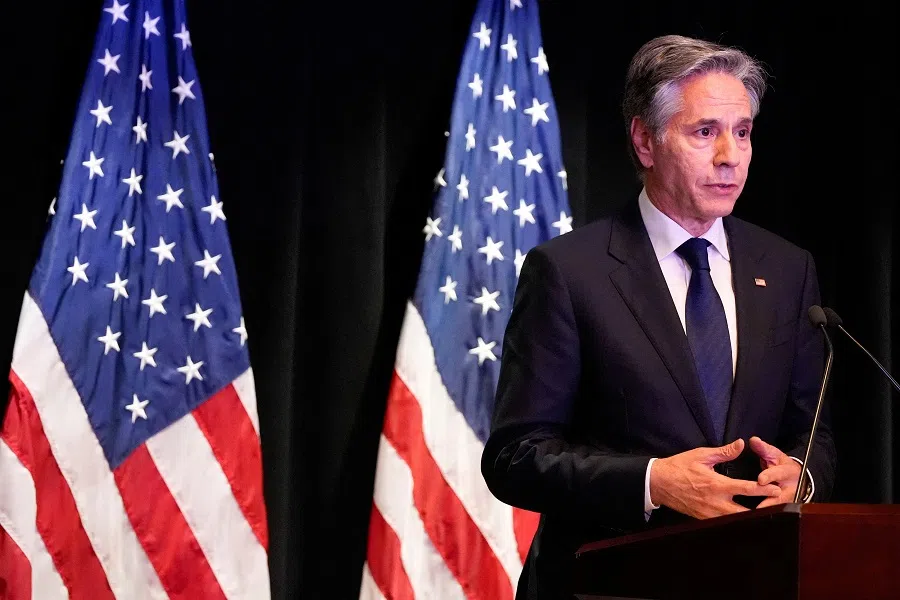Why won’t Washington succeed in curbing China-Russia trade?
US academic Zhu Zhiqun explains the China-Russia quagmire in US-China relations, pointing out that US officials should ask themselves: is it realistic to expect Beijing to curb trade with Russia when Washington itself is forming all the security alliances to counter China?

A new contentious issue has emerged in the already complex US-China relationship: China’s trade with Russia.
Russia-China trade jumped to a historic high of US$240 billion in 2023, an increase of 26.3% from the previous year. Russia and China have almost completely stopped using the US dollar in their trade, with over 90% of the settlements being carried out in the two countries’ own currencies.
US officials claim that China’s support for Russia through trade has allowed Russia to continue its war in Ukraine. Specifically, the burgeoning China-Russia trade has helped Russia to rebuild a military severely weakened by more than two years of fighting.
The Russia-Ukraine war poses a dilemma for China since China has friendly relations with both. China has not publicly condemned Russia’s invasion of Ukraine and has maintained a sort of pro-Russia neutrality. It has not supplied lethal weapons to Russia so far but has provided Russia with technologies and equipment that have military and commercial applications. US officials believe that such exports, which include optics, microelectronics, drone engines and turbojet engines, could be used for Russian tanks, armoured vehicles and cruise missiles.
Before his 24-26 April trip to China, US Secretary of State Anthony Blinken accused Beijing of being the “primary contributor” to Russia’s defence industrial base. “We see China sharing machine tools, semiconductors (and) other dual-use items that have helped Russia rebuild the defense industrial base that sanctions and export controls had done so much to degrade,” said Blinken.
In Washington’s view, Russia’s win will be the defeat of the free world. That is why Washington is so frustrated with Beijing’s tacit support for Russia.

Beijing disagrees. A spokesperson for the Chinese embassy in Washington described the Chinese exports as lawful trade, and said the Biden administration was making “groundless accusations”. China’s right to conduct normal trade with Russia should not be interfered with or disrupted, said the Chinese diplomat, adding: “The United States should immediately stop imposing unilateral sanctions on Chinese companies and individuals.”
An ideological divide
The latest dispute over China-Russia trade reveals serious problems between the US and China.
First, the US and China remain at odds over the Russia-Ukraine war. While Washington views Russia’s aggression as a security threat to Europe, Beijing argues that all nations’ security concerns must be taken care of, including Russia’s concern about NATO expansion.
The US believes that Ukraine is part of the “free world” and Russia is an authoritarian regime. The US will not tolerate Russia’s victory in the war. In Washington’s view, Russia’s win will be the defeat of the free world. That is why Washington is so frustrated with Beijing’s tacit support for Russia.
In international conflicts the US knee-jerk reaction is to use force and sanctions. Diplomacy is a rarity nowadays.
The US puts Russia, China, Iran and North Korea in the same category and views them as challenges to the US-led liberal international order. This ideological divide automatically pits the United States and China against each other.
Military action versus negotiations
Second, the US and China take different approaches to international disputes. Generally speaking, the US favours using military force to resolve disputes while China prefers peaceful settlement through negotiations. Although Beijing has been accused of being assertive in its diplomacy, Chinese foreign policy is largely defensive, rather than offensive.

The US has the world’s most powerful military and largest military budget. According to Stockholm International Peace Research Institute, US military expenditure reached US$916 billion in 2023, more than three times larger than China’s US$296 billion. The US budget accounted for 37% of the world’s total and was about the size of the next ten largest spenders combined.
The powerful military-industrial complex heavily shapes US foreign policy. In international conflicts the US knee-jerk reaction is to use force and sanctions. Diplomacy is a rarity nowadays.
The latest example is the hasty passage of a foreign aid package by both houses of Congress which was signed into law by President Biden to provide massive military aid to Ukraine, Israel and Taiwan. Few American politicians ask whether such colossal military aid could be counterproductive and may fail to bring peace to Ukraine, the Middle East and the Taiwan Strait. Biden said after signing the bill that it was “a good day for America, a good day for Ukraine and a good day for world peace”. Apparently, he thinks world peace is achieved by military means, not through diplomacy.
In the longstanding Israel-Palestine conflict, China has consistently advocated implementation of the “two-state” solution, but the US continues to side with its ally in an arguably genocidal war, and recently vetoed a widely supported resolution to accept Palestine as a full member of the UN.
Washington fails to understand that a substantially weakened Russia is not in China’s interest.
Different perceptions of each other
Finally, the US and China disagree over the nature of their relationship and the measures to deal with each other.

While China emphasises the common interests and urges the two sides to treat each other as partners for win-win cooperation, the US focuses on the competitive dimension of the relationship and views China as the biggest rival and threat. The ultimate objective of the Biden administration’s Indo-Pacific strategy is to “outcompete” China, which deepens mutual suspicion and leaves little room for bilateral cooperation.
Unfortunately, it is such deep distrust and ruthless rivalry that is driving policies from both sides. Perhaps US officials should ask themselves: is it realistic to expect Beijing to curb trade with Russia when Washington itself is forming all the security alliances to counter China? In addition, Washington maintains high-tech bans towards China, threatens to raise tariffs on Chinese exports, provides weapons and military aid to Taiwan, and forces ByteDance to sell TikTok, all in the name of protecting US national interests.
Washington fails to understand that a substantially weakened Russia is not in China’s interest. The Biden administration has threatened to punish Chinese companies engaged in trade with Russia. Such punitive policies are bound to trigger retaliatory measures from China and will only contribute to destabilisation of relations.
Unless and until the two countries figure out how to manage their differences and treat each other properly, one should not expect Washington and Beijing to coordinate their policies on major global challenges, from Ukraine to the Middle East. In this circumstance, one wonders why Washington thinks Beijing would help it to defeat Russia.





